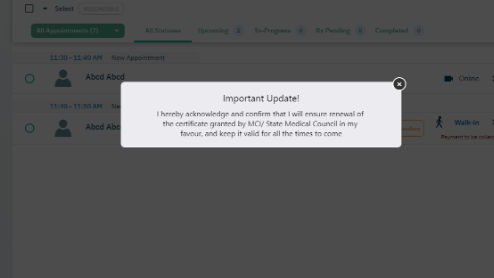Heart Conditions
These Lifestyle Changes Can Save You From A Heart Attack
4 min read
By Apollo 24|7, Published on - 05 May 2022, Updated on - 25 September 2023
Share this article
0
10 likes

Sudden, crushing pain in your chest can leave you scared and alarmed. While oftentimes, the situation isn't what you fear, this is believed to be one of the classic signs of a heart attack. Though heart attacks can be prevented efficiently, the cases of this deadly condition have been rising over the years. In 2020 alone, more than 47 lakh people in India lost their lives to it.
According to experts, a sedentary lifestyle, an unhealthy diet, and stress are some of the major factors that are contributing to poor heart health. The article sheds light on some of the proven ways to help you reduce your risk of a heart attack.
1. Eat a Healthy and Nutritious Diet
Your diet has a major role to play in maintaining the optimal health of your heart. A diet high in saturated fats, processed carbs, sodium, added sugars, and trans fats can contribute to atherosclerosis (hardening of arteries) and increase your risk of a heart attack. Follow an eating plan that limits consumption of fried and processed foods, sweetened and carbonated beverages, alcohol, etc. Focus on intake of fresh vegetables, fruits, whole grains, legumes, nuts, plant-based proteins, and healthy fats such as olive oil, to improve your heart health.

2. Lose Weight
Several studies have shown that being overweight or obese is linked to a higher risk of a heart attack. The excess body weight forces your heart to pump harder to supply blood throughout your body, thus, damaging your arteries and raising your blood pressure. Obese people are also prone to high cholesterol and type 2 diabetes, both of which are also associated with an increased risk of heart disease, stroke, and heart attack. Experts say that losing even 10% of your current body weight can be beneficial for your heart and blood vessels.
3. Become Physically Active
Being physically active can play a major role in the prevention of heart attacks. Exercise offers multiple benefits such as weight loss, lower cholesterol levels, better blood circulation, lower blood pressure, and reduced risk of type 2 diabetes, all of which are risk factors for heart diseases. Unlike popular beliefs, you don’t have to exercise vigorously to improve your heart health. In fact, if you have not been physically active for some time, then you should begin with low-impact exercises such as walking, cycling, and swimming and then slowly work your way up. Generally, adults should engage in 30 minutes of moderate aerobic physical activity for at least 5 days per week.
Recommended reading: Explained: Heart Attack, Cardiac Arrest, and Heart Failure
4. Quit Smoking
Cigarette smoking is one of the primary risk factors for heart disease and heart attack. Smoking triggers the accumulation of plaque (a fatty substance) in the arteries, which eventually leads to atherosclerosis, high blood pressure, and heart disease. If you smoke, quitting will considerably lower your risk of a heart attack. In fact, the benefits of smoking cessation could be seen immediately after quitting, such as improved blood circulation, lowered blood pressure, and enhanced oxygen supply to the body.

5. Lower Stress
All of us experience stress occasionally, however, chronic stress can increase your risk of blood pressure and heart disease. In fact, frequent episodes of extreme stress can also lead to a heart attack. People often adopt unhealthy practices such as overeating, overindulging in alcohol, or smoking to cope with stress. Managing stress can improve your heart health efficiently. Other than exercising, listening to soothing music, meditation, yoga, slow breathing, and mindfulness are some of the relaxation techniques that you can practice to reduce stress.
6. Sleep Well
Research has shown that sleep and heart health are closely related as lack of sleep can result in high blood pressure, obesity, and diabetes, thereby increasing your risk of heart disease. You should try to get at least 7 to 9 hours of sleep every night for good heart health.
7. Manage Pre-existing Health Conditions
Having any chronic medical condition such as high blood pressure, high cholesterol, and diabetes can significantly raise your risk of heart disease. Many of these conditions often do not exhibit any noticeable symptoms initially, therefore it is important to get regular health check-ups. A timely diagnosis will allow your healthcare provider to suggest treatment options including medications and lifestyle changes to help you manage your condition effectively.

In most cases, it is possible to prevent heart disease and heart attacks by leading a healthy lifestyle. However, it is important to note that no piece of healthcare advice can substitute expert medical opinion. Therefore, it is recommended that you consult a qualified healthcare provider to know more about ways to improve your heart health.
Heart Conditions
Consult Top Cardiologists
View AllLeave Comment
Recommended for you

Heart Conditions
Heart Blockage: Symptoms, Causes, Diagnosis, Treatment and Prevention
Learn all about heart blockage, including its symptoms, causes, diagnosis, treatment and prevention. Stay informed and take steps to protect your heart health.

Heart Conditions
Low Blood Pressure (Hypotension): Symptoms, Causes, and Treatment
Abnormally low blood pressure (hypotension) can lead to dizziness and loss of consciousness. Chronically low blood pressure can also signal an underlying health condition such as an inadequate flow of blood to vital organs.

Heart Conditions
Pacemaker For Heart: Know The Types And How It Works
Pacemakers are man-made devices that are supposed to improve the electrical function of your heart. They are installed by doctors and surgeons to solve any electrical malfunctions.
Subscribe
Sign up for our free Health Library Daily Newsletter
Get doctor-approved health tips, news, and more.
Visual Stories

Can Processed Meat Increase the Risk of Chronic Diseases?
Tap to continue exploring
Recommended for you

Heart Conditions
Heart Blockage: Symptoms, Causes, Diagnosis, Treatment and Prevention
Learn all about heart blockage, including its symptoms, causes, diagnosis, treatment and prevention. Stay informed and take steps to protect your heart health.

Heart Conditions
Low Blood Pressure (Hypotension): Symptoms, Causes, and Treatment
Abnormally low blood pressure (hypotension) can lead to dizziness and loss of consciousness. Chronically low blood pressure can also signal an underlying health condition such as an inadequate flow of blood to vital organs.

Heart Conditions
Pacemaker For Heart: Know The Types And How It Works
Pacemakers are man-made devices that are supposed to improve the electrical function of your heart. They are installed by doctors and surgeons to solve any electrical malfunctions.



